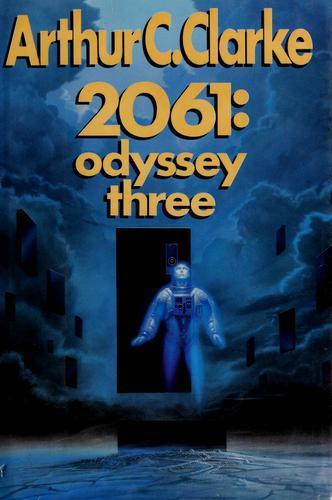ibk@bookwyrm.social reviewed 2061: Odyssey Three by Arthur C. Clarke
Ok
3 stars
I wasn’t expecting much from this, having been badly burned by reading one of the other “great ideas” authors in the form of Isaac Asimov (he may have had some great ideas, but his writing is third-rate and his characters are poorly drawn…) So I was pleasantly surprised by how easy Clarke is to read (as long as you can get over the inbuilt sexism and colonialism, and the curious devotion to Great Men of Science and Business). But not much happened, really. Short version: there is other life in the solar system, and the Monoliths are full of woo. Most of the book seemed to be setting up for a climax that never really arrived. Probably of interest to Odyssey completists, but there are better books out there.

